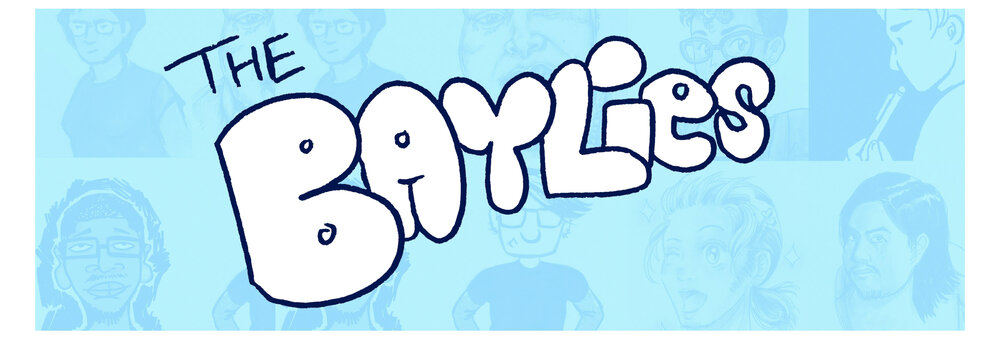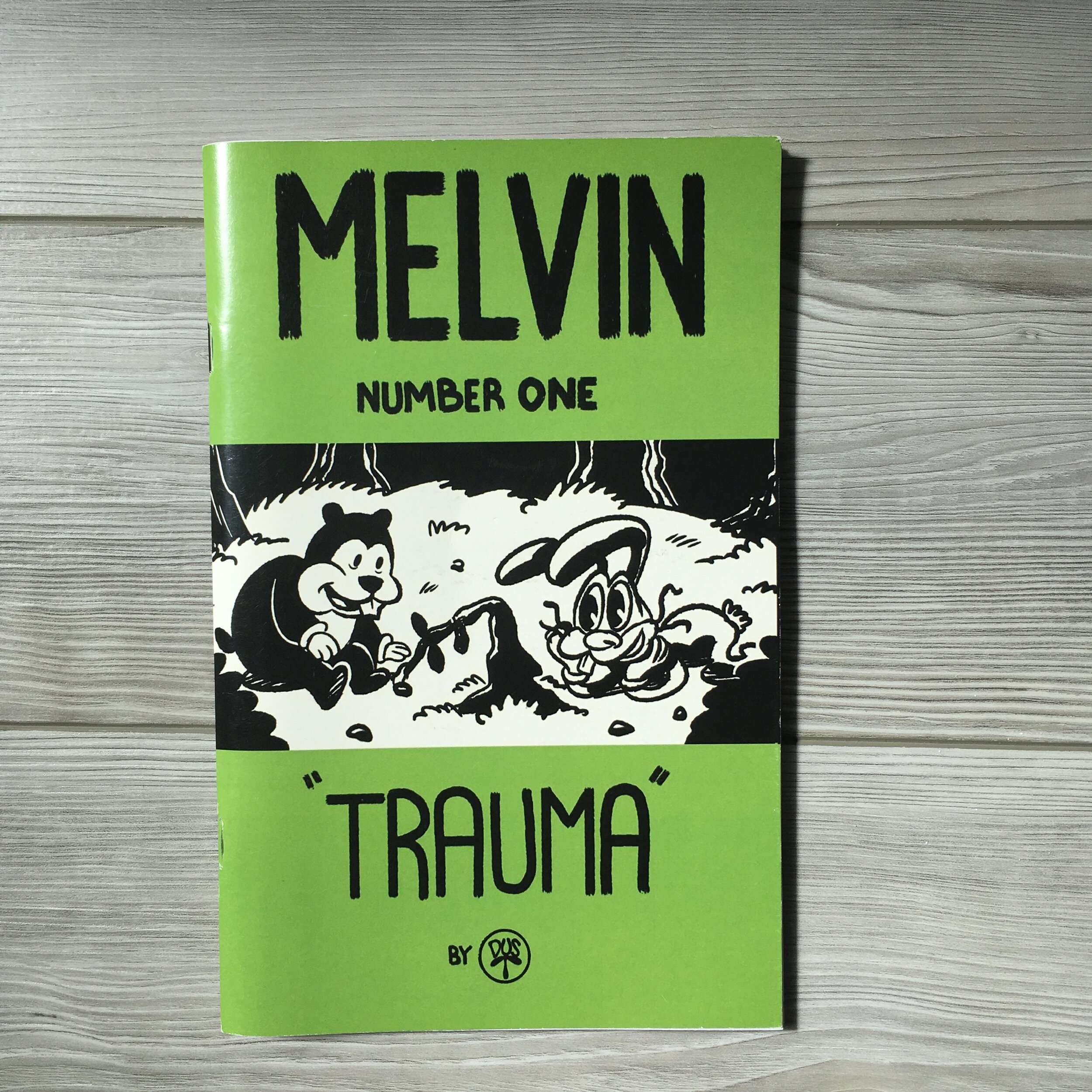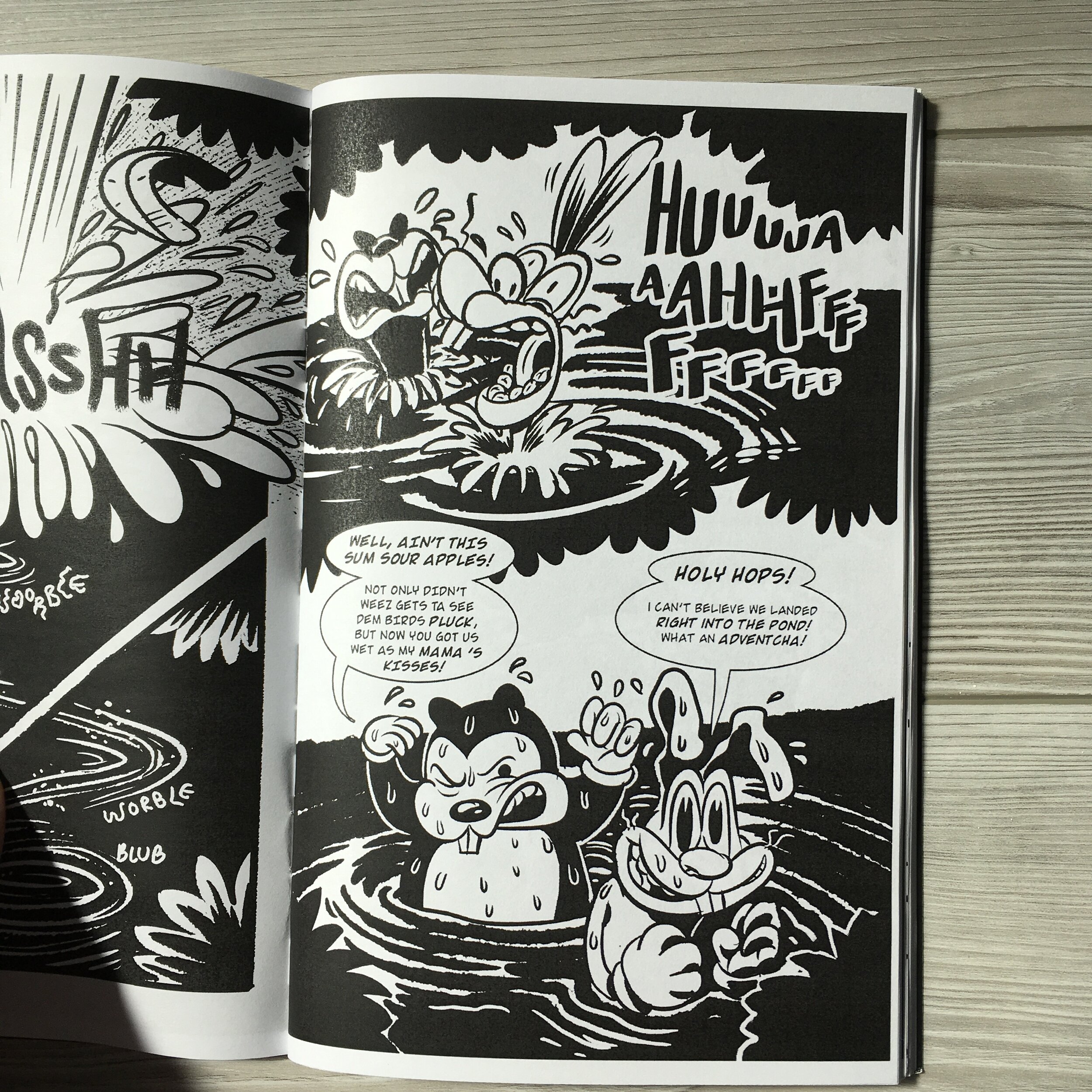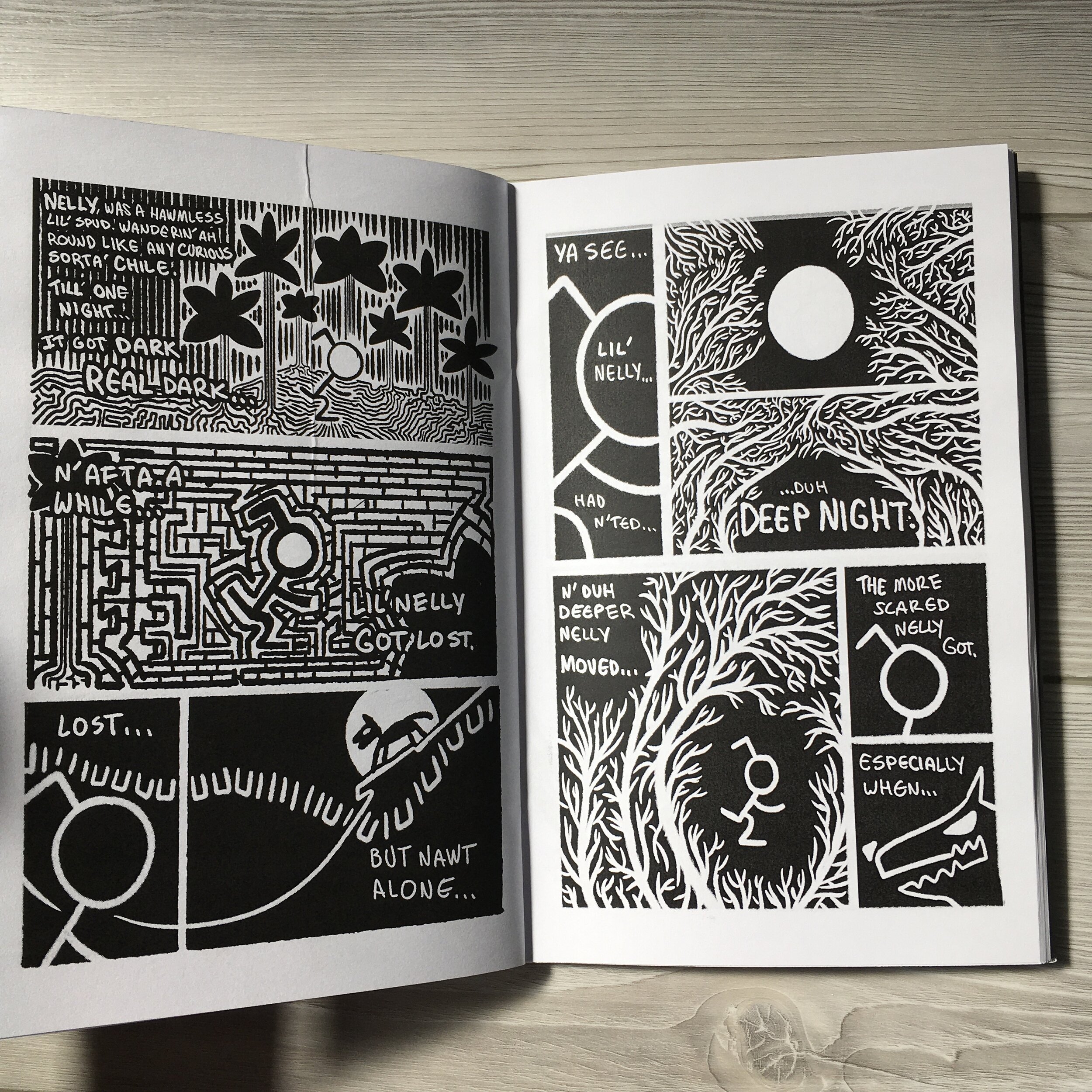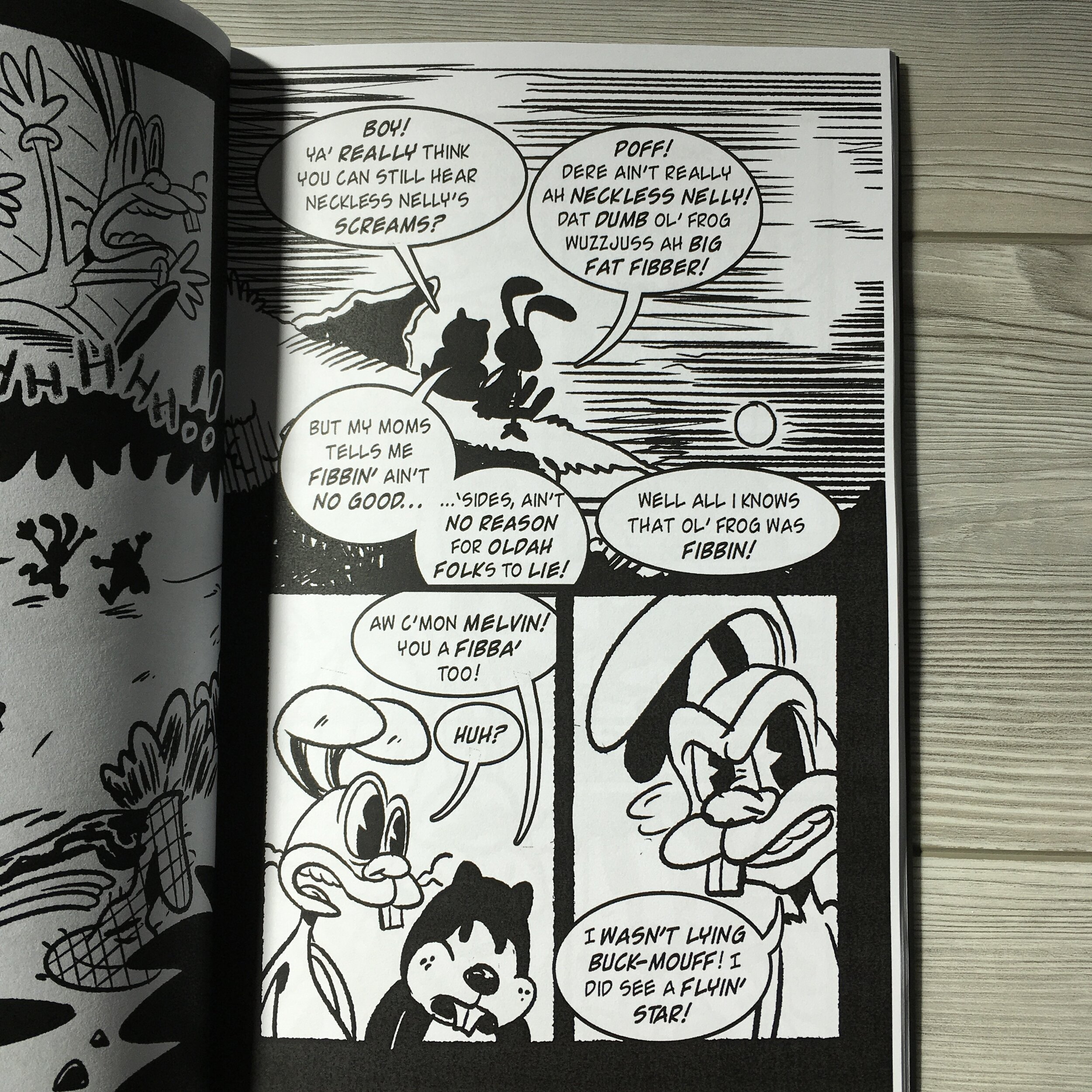I met Dustin in undergrad. We were both studying in the Digital Media department, with an emphasis in 2d animation and illustration. There were a handful of us that really took to comics and 2d animation. We were kinda like the outcast. lol. Especially in a time when 3d and Vis Fx were dominating the schools and entertainment industry.
We tried to start a comics magazine at the school, but it didn’t work out. Then for LA Zine Fest, we did a small comics anthology zine with 2 other cartoonists. It’s wonderful to see Dustin to continue to grow and carve out his place in comics, especially because when we were in school we didn’t get a lot of support from our department.
If you know Dustin, then you know his love for old black and white cartoons, underground and alternative comix plays a huge role in his process. But, I believe (because I know him) that when he got heavily into Hip-Hop that took his style to another level.
I have seen Dustin’s comic path from his early 20s to now in his 30s, and hopefully I will get to keep seeing him grow until he transitions from this earth.
Cyclops 2012
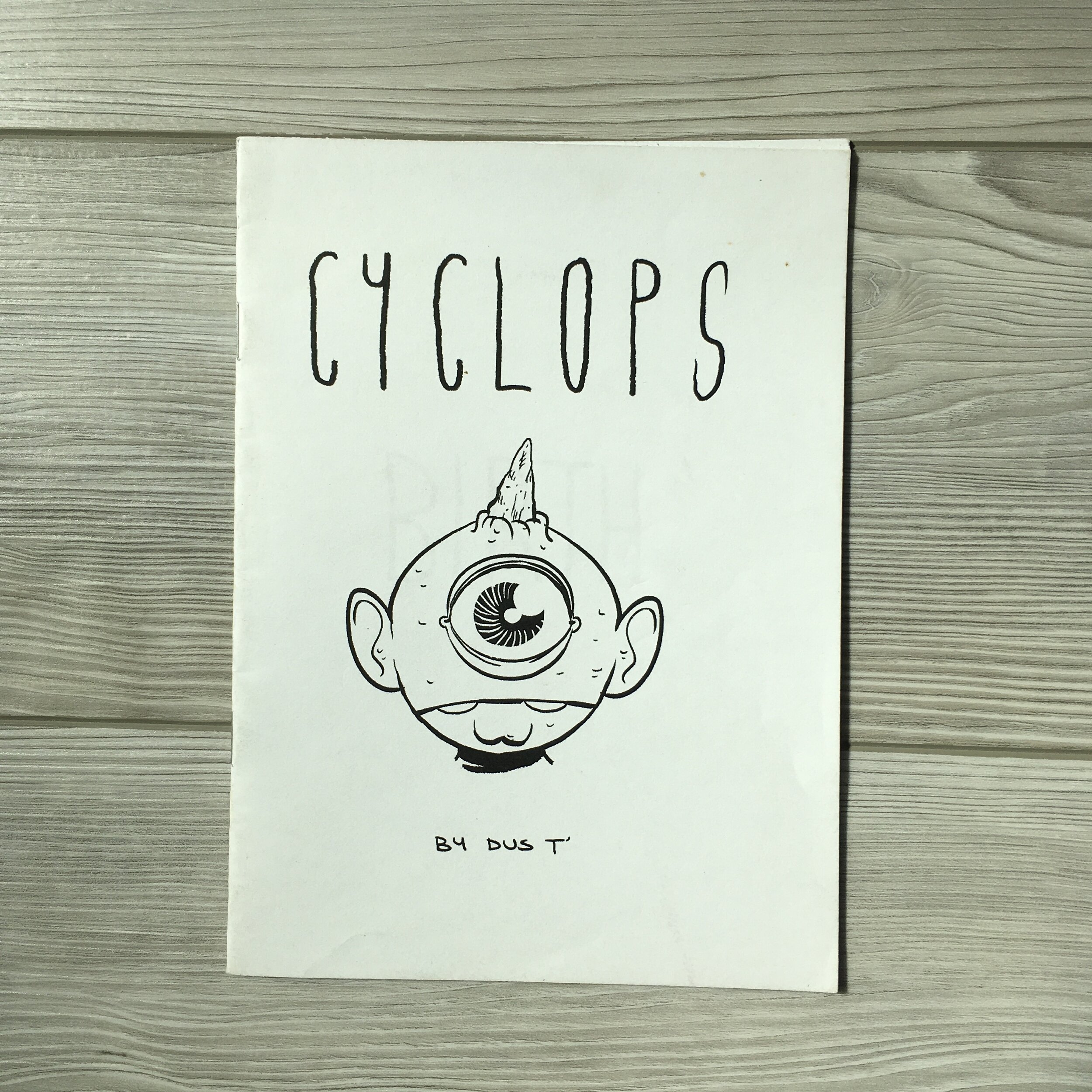
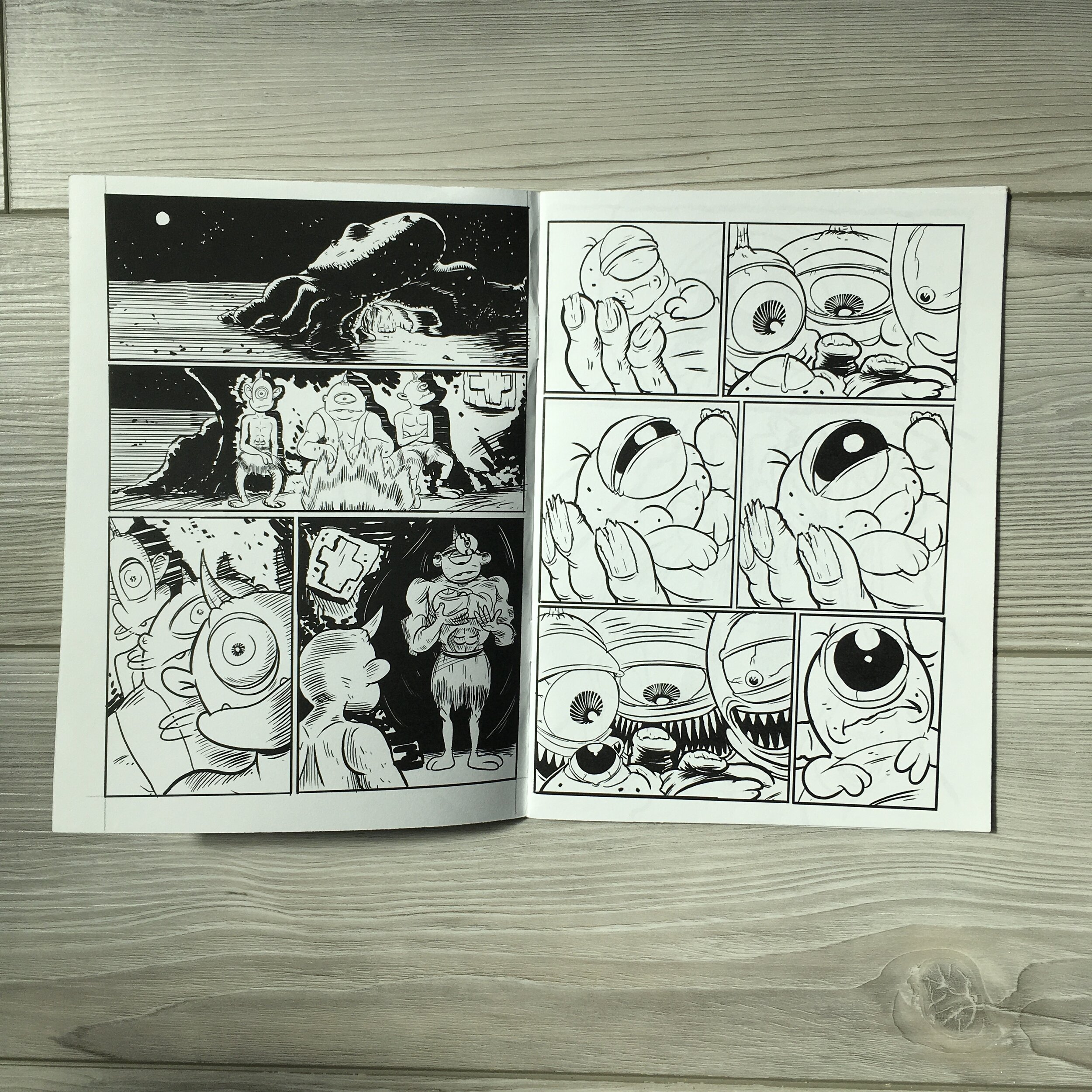
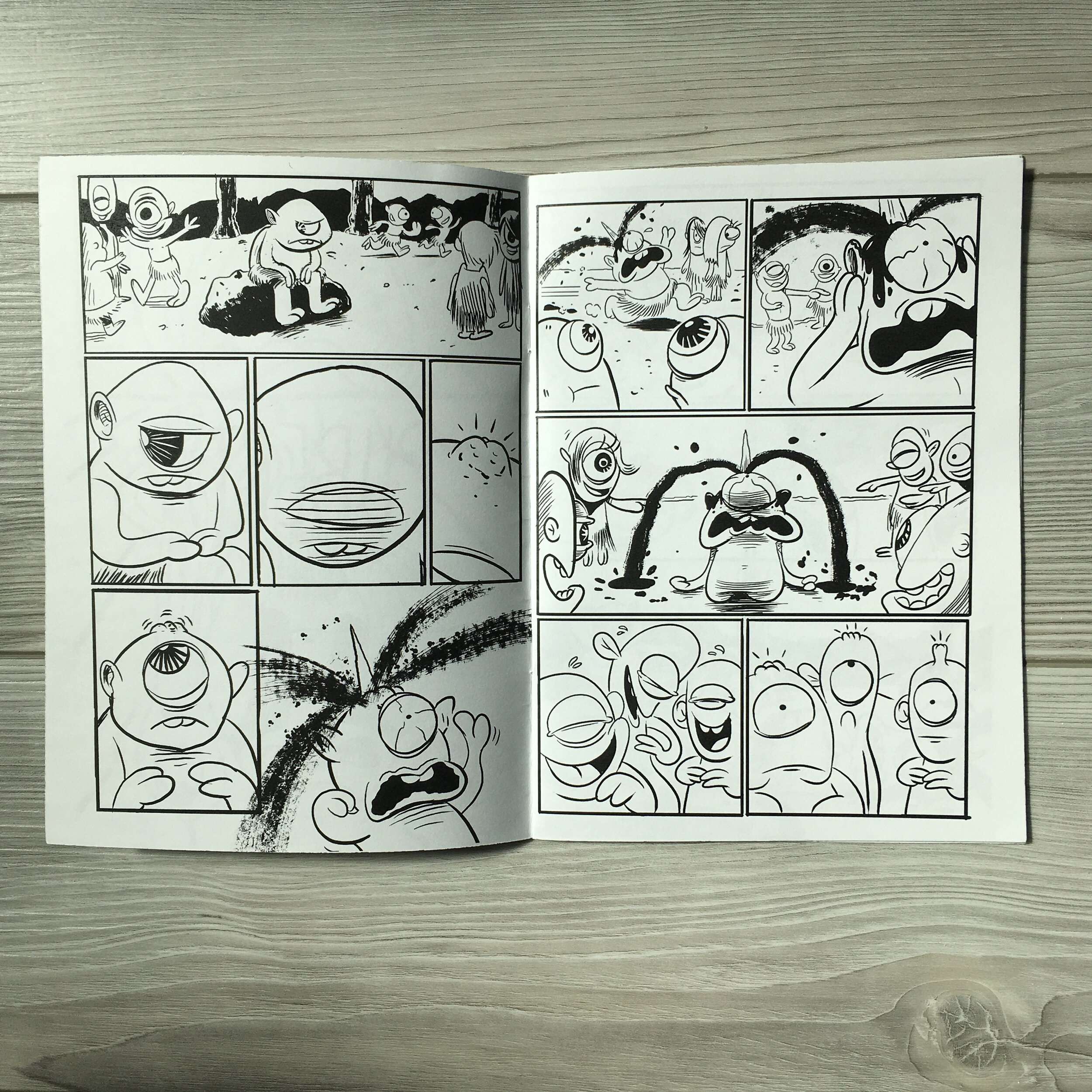
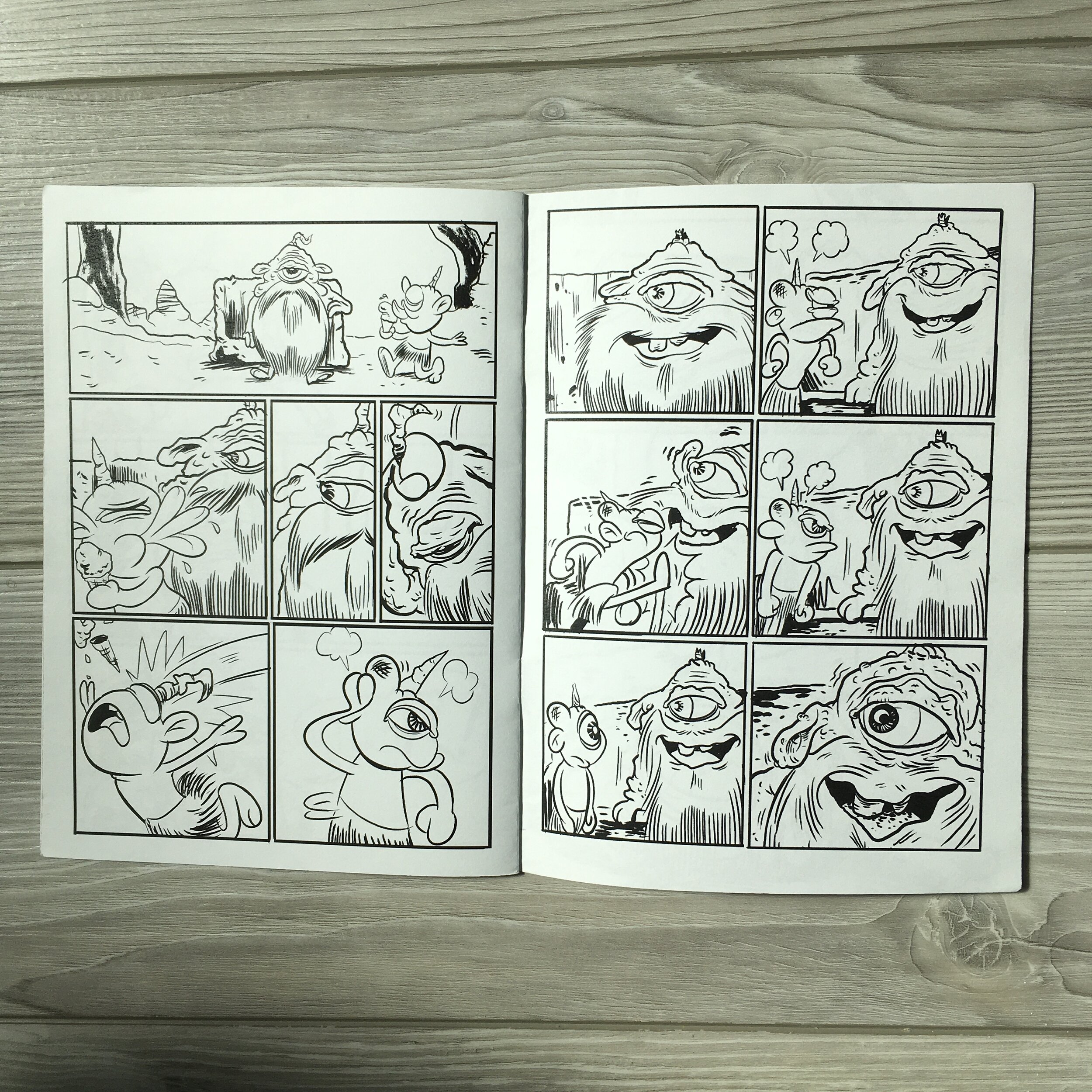
Melvin 2017
DUSTIN GARCIA INTERVIEW 2020
What has life been like for the past few years? How are you doing?
The last few years have been a rollercoaster of heaven and hell. I've taken a lot of time to restore my mental health and heal from personal trauma. It's the main reason why I've been off social media, and have prioritized my spiritual development and maturity. Without this, I can't create anything meaningful for myself.
I am happy to say that I'm graduating soon with an MFA in Comics. This is something completely new and unprecedented in comics history, and I'm excited to be apart of it.
Are you from the Bay Area or did you move here? If not, where are you from originally?
I was born and raised in Los Angeles, but moved a lot growing up. When I reached 2nd grade, my parents decided to move to the Bay Area for work opportunities. I remember loving the Bay Area as a kid, especially San Francisco. Unfortunately, my parent's plans fell through, and once again we were back in Los Angeles.
Things came full circle when I decided to move to Oakland in 2014, and I still consider it one of the best decisions I ever made. Funny enough, just as my parents did, me and my partner decided to return to Los Angeles in late 2018. It was time to come home, but I still hold dear to my memories of the Bay Area.
When did you start making comics?
I started drawing comics in elementary school. My earliest attempts were short little strips inspired by video game characters, and superhero rip-offs akin to the Marvel and DC mythos. I also made newspaper-style comic strips inspired by Calvin & Hobbes and, for better or worse, Garfield.
In middle-school I discovered manga and became enthralled by the Japanese aesthetic. I began to attempt longer, more intentional, and complete narratives. This led to creating what I consider my first zine entitled, "Yuko! The Chubby Boy". It was a series that followed the misadventures of a pudgy, spiky-haired child who battled the forces of procrastination, haunted food cans, and military-grade robot-cats.
The prototype was a hilariously pencil smudged, crudely stapled stack of folded printer paper. Despite this, many of my peers at the time were excited to read them, and even started paying me lunch money to produce weekly issues. I consider it the first time I ever got paid to make comics.
My identity as a cartoonist solidified in high school. One day, a classmate handed me two books I consider the most important books I've read in my career. Jhonen Vasquez's cult-classic, "Johnny the Homicidal Maniac", and James O'Barr's masterpiece of poetic justice, "The Crow". These books opened me to the world of independent comics. For the first time, I began to recognize comics as a literary tool to explore and facilitate one's identity and experiences.
This uncompromising freedom of creativity helped me to recognize comics as a serious medium, and validate the legitimacy of self-publishing. These notions I would have not considered until then, and to this day they remain imperative to my creative philosophy.
How has the progression of your cartooning career impacted your life?
Recognizing my life purpose, and how my passion for comics and education reform intersect. Comics maintained my interest in reading and led me to read text-based books I would have never considered. The United States public school system misled me to believe my intellectual capacity was limited. My commitment to cartooning dispelled this lie, and because of comics, I'm still compelled to practice creativity, research, and critical thinking.
How have you grown since your earlier comics?
I have been able to reclaim my voice that was nearly stolen during my art undergrad years. My drawing style has matured into a balance of experimentation and technical prowess, and many insecurities in writing ability have been lifted. I believe the key to this evolution simply has been a trifecta of commitment, persistence, and practice. It took me years to rethink my definition of success, but I focus now on completion, not perfection.
What are some of your most memorable moments of your career so far?
Completing two issues of my comic Melvin was a major breakthrough for me. It was by far the most vulnerable moment in my career since it was my most personal story. Touring as a cartoonist across the country has also been a huge blessing. I was able to expand my community, facilitate comic workshops, speak in panels, and even got published in an anthology. (Tales from La Vida by Frederick Luis Aldama). Earning an MFA in comics has also been an incredible moment in my career, and I look forward to utilizing it as a tool for education.
What is different about The Bay Area comics scene compared to other places you have been?
The Bay Area comics community is very politically, intellectually, and ethnically diverse. The comics culture tends to be more community-oriented and prioritizes the experiences of individuals in marginalized communities. The comics culture also has a strong emphasis on tolerance and often intersects with its legacy of activism. It would be an understatement to say the Bay Area changed how I saw the world, and what I would want to share in my stories. The East Bay Zine Festival perfectly exemplifies this intersection.
Any comics recommendations?
Zotz by Daniel Parada
What's New Under Tonatiuh? By Louise Fogerty
Count Me! Why I took the U.S. Transgender Survey by Alex Combs
Tortillas by Jaime Crespo
Lowriders in Space by Cathy Camper
The Parable of the Sower: A Graphic Novel Adaptation by John Jennings & Damian Duffy
In the Dark by Crystal Gonzalez
Rise of the Black Panthers by Alan Clark
Starseeds 1+2 by Charles Glaubitz
20th Century Boys by Naoki Urasawa
Barefoot Gen by Keiji Nakazawa
Kabuki: The Alchemy by David Mack
Jack Kirby: The Epic Life of the King of Comics by Tom Scioli
What influences your work?
History, philosophy, and the beauty of life itself.
I find the lessons of the past relevant to the present, and comparing the two can help us see into the future. I believe that alluding to history through stories gives audiences an opportunity to think critically about events of the past in a different light. Even in an imaginary context, the emotional reality resonates with readers.
Philosophy has given me the tools to explore the message of my stories, and to inform the actions of my characters. Every person is a philosopher and is directly influenced by their life experiences.
The wisdom of everyday life never fails to amaze me, and there is much to learn from everyday people. I believe in the art of listening, and how it promotes empathy and understanding.
What do you want to do in comics in the next 5 years?
Start my own non-profit school that utilizes comics as an educational alternative, and continue to develop my craft. I also plan to continue producing and publishing graphic novels that will challenge me, and my readers.
What are you working on now?
I am currently looking for representation, and developing pitch packets to shop around to publishers to gain more professional experience, and perhaps land a book deal.
Upon learning HTML in grad school, I've become obsessed with the potential of web-comics. I hope to explore the possibilities of how animation can be combined with comics to innovate new storytelling methods. My plan is to create a website that anthologizes these experiments.
I've also working on a series of memoir comics that explore my relationship with religion and how it intersects with mental health.
I am also doing my first major professional collaboration for a graphic novel. It's a magical realism story that takes place in Central America and illustrates the migrant experience. The best part is that it's going to introduce a cultural context to creatures based on Central American folklore.
What does your work represent to you?
The power of love, the importance of empathy, and the infinite wisdom of curiosity.
Dustin’s Comic For The BAYlies 2018.
Thank you so much to Dustin for doing this interview. The BAYlies is an archive project and it’s important for me as someone who is here right now to document and record what is happening, what has happened and will happen.
Please check out their work
Peace and Love
-Lawrence
